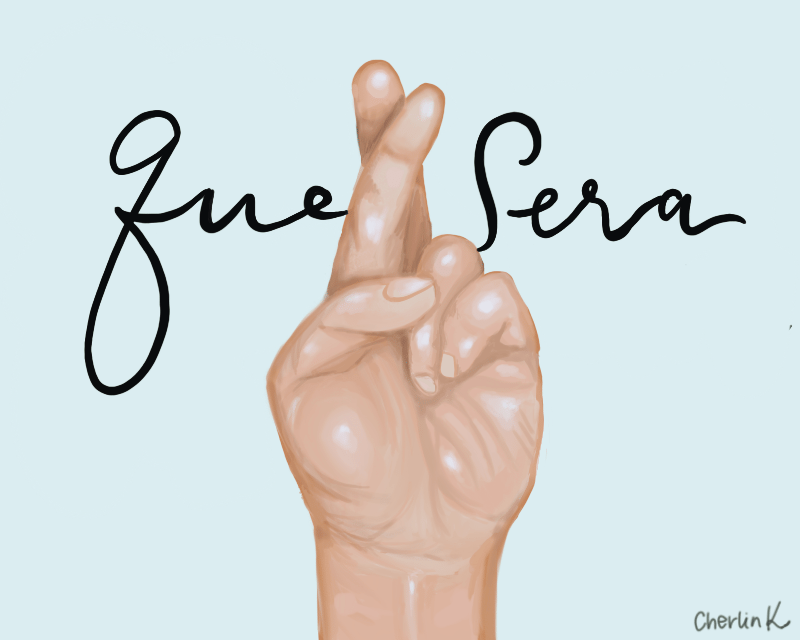A blind prayer: Que sera, sera
Que sera, sera: What will be, will be. The song lyric by Doris Day and Frank De Vol is now a whimsical cliche. That doesn’t mean the iconic line from the 1950s is not truthful. There are instances where we must accept the uncontrollable forces that impact our deeply intertwined lives: this we call luck.
For better or worse, luck is particularly powerful in our daily lives as high schoolers. An unexpected speck of good fortune comes like a present that everyone appreciates. But the harsh reality—the occasional bad luck—often demoralizes young, ambitious students who naively conceive our world as a perfect meritocracy.
Catching a cold before the SATs, spraining an ankle during pick-up basketball, or having to study for three summative tests: luck doesn’t spare the hard-working. When our best efforts are thwarted by external factors, it’s easy to feel discouraged from trying hard ever again.
After all, blaming the mysterious force that is “luck” rather than blaming ourselves is compelling. As world-renowned philosophers like Michael Sandel have launched an indictment on meritocracy, this ill-informed narrative of our helplessness in the universe has gained popularity.
However, to think that luck governs our lives and to understate our agency in impacting our future is dangerous. What fancy books criticizing meritocracies, such as The Tyranny of Merit and The Meritocratic Trap, fail to highlight is the value of rewarding earned merit. The drawbacks of aiming for a perfect meritocracy do not warrant deemphasizing self-improvement.
The same applies to schools. Though ensuring all individuals equal opportunities to succeed in high school is a tall—even impossible—task, constant efforts to rectify the system are necessary. The new retake policies and test-day absence quotas are, in fact, sincere steps toward fixing problems from the administration’s end.
The countless senior-lounge complaints and Tiger Times editorials that ask for another new school policy can seem overdone at times. In part, students may just need to accept the uncontrollable, luck-driven aspects of life. But we also need continued self-reflection and constructive criticism to tackle issues we may have control over.
Yes, there are tests we fail no matter how many sleepless nights precede them. There are awards unattainable no matter how many years were spent practicing for them. We will all find ourselves on the doorstep of blaming luck one day, unable to accept that our own shortcomings are of fault.
We may be right. All it takes is one miscalculation, one slip of the finger on the violin, one grumpy admissions officer—anything that doesn’t seem to fairly represent our skill—to fail. But in those moments, we need to put the misfortune behind us and work to put ourselves back in a position to succeed.
Because time and effort are precious means of change available to us. Because ultimately, what more is there we can do?
If you won’t take our word for it, perhaps the Bible puts it best.
God, grant me the serenity to accept the things I cannot change, courage to change the things I can, and wisdom to know the difference.






